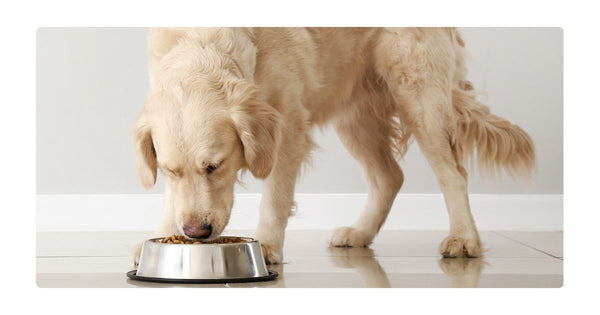
Understanding Dog Coughing: Causes, Symptoms, and Prevention
December 01, 2023Dogs are our faithful companions, bringing endless joy and love. However, just like humans, they can suffer from various health issues, including coughing. Have you ever asked yourself, "Why is my dog coughing?" you're not alone. This article will explore the causes of dog coughing, how to recognize it, what to do if your dog is coughing, and essential tips for preventing this common canine ailment.
Why is My Dog Coughing?
Dog coughing can be caused by many factors, ranging from minor irritations to severe health conditions. Some common causes include:

- Kennel Cough - Also known as canine infectious tracheobronchitis, kennel cough is a contagious respiratory disease often contracted in places where dogs are in close proximity, like boarding facilities or dog parks.

- Respiratory Infections - Bacterial, viral, or fungal infections in the respiratory tract can lead to coughing. Pneumonia is a severe condition that may cause persistent coughing.

- Heart Disease - Heart conditions can cause coughing, especially at night or after physical activity. Congestive heart failure leads to fluid accumulation in the lungs, triggering coughing.

- Allergies - Dogs, like humans, can be allergic to pollen, dust, mold, or certain foods, leading to coughing fits.

- Foreign Objects - Ingested foreign objects can irritate the throat, causing coughing. It’s essential to keep small items away from your dog’s reach.

- Tracheal Collapse - This is a common issue in small dog breeds where the windpipe weakens, causing coughing, especially during excitement or pulling on a leash.
How to Recognize Dog Coughing
Dog coughing may sound different from a human cough. It often resembles a hacking noise and can be dry or wet (productive). Dogs might also display other symptoms, such as wheezing, gagging, vomiting, or lethargy. If any of these symptoms are observed, it is essential to seek a thorough diagnosis from your veterinarian.
By being proactive, incorporating beneficial supplements like salmon oil for dogs, and staying vigilant about your dog's health, you can provide the best possible care for your beloved pet.
What to Do If Your Dog is Coughing


2. Avoid Irritants: Keep your dog away from smoke, strong odors, and allergens to prevent further irritation to their respiratory system.

3. Maintain Optimal Humidity: Dry air can exacerbate coughing. A humidifier can add moisture to the air and soothe your dog’s throat.

Preventing Dog Coughing

Vaccination
Ensure your dog's vaccinations, including the kennel cough vaccine, are up-to-date. Regular vaccinations can significantly reduce the risk of infectious diseases.

Proper Diet
Provide a balanced diet rich in nutrients to boost your dog’s immune system and overall health.

Regular Exercise
Keep your dog physically active, but avoid strenuous activities in extreme weather conditions.

Maintain a Clean Environment
Regularly clean your dog's living space, wash their bedding, and groom them to reduce the risk of allergies and respiratory irritants.

Regular Vet Check-ups
Schedule routine veterinary check-ups to monitor your dog's health and catch any potential issues early.
Conclusion
Understanding the causes of dog coughing, recognizing its symptoms, seeking timely veterinary care, and following preventive measures are essential in ensuring your furry friend leads a healthy and happy life. Being proactive and attentive can minimize the risks and keep your canine companion cough-free and content.
